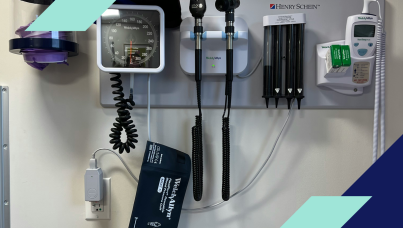Consumers' Assessment and Outlook for the Canadian Economy
The overall state of the national economy today receives a divided appraisal from the Canadian public, although the number offering a positive assessment has been increasing slowly but steadily since the beginning of the year. However, when it comes to what lies ahead for the Canadian economy over the coming year, a large plurality of more than four in ten continue to envision the status quo and, among the remainder, pessimists continue to marginally outnumber optimists.
These findings emerged from a National Angus Reid Poll conducted among a representative cross-section of 1503 Canadian adults between September 21st and 24th, 1995.
Consumers' Appraisal of the Current State of the National Economy
Canadian consumers are essentially divided in their assessment of the overall state of the Canadian economy today. Forty-seven percent of those surveyed in late September offered a favourable appraisal of current economic conditions in the country as a whole (46% described them as "good", only 1% as "very good"), while 51 percent provided a negative characterization (41% "poor", 10% "very poor").
Significantly, however, the proportion of Canadians who offer a positive assessment of the overall health of the national economy has been inching upwards steadily since the beginning of the year: in January, 36 percent of those polled described the health of the Canadian economy as "good/very good" (versus fully 63% who opted for "poor/very poor" at that time), with the number seeing things in a favourable light rising to 42 percent in March, 44 percent in May, and to 47 percent in the current sounding.
Regionally, a favourable assessment of the Canadian economy today is offered by a majority of residents of British Columbia (55%) and Alberta (54%), the only two regions where residents' appraisal of the national economy has improved significantly since the last time this question was asked by the Angus Reid Group in May. On the other hand, most Quebecers and Atlantic Canadians (57% and 60% respectively) feel that the country's economy is presently in bad shape - indeed, Atlantic Canadians' views on this count have deteriorated since this spring when they provided a split assessment. Meanwhile, people living in Ontario and Manitoba/Saskatchewan are divided in their appraisal.
Across major socio-demographic segments of the population, those relatively more likely to describe the current state of the Canadian economy as "good/very good" tend to be men (53%), older residents (51% of those 55+), and those from households with a total annual income exceeding $30,000 (50%). Conversely, those most likely to believe the national economy is in poor shape include women (57% "poor/very poor") and members of households with total annual incomes under $30,000 (56%).
Canadians' Outlook for the National Economy
One in four (24%) surveyed Canadians said they expect the country's economy to "improve" over the course of the coming year, but a slightly larger number (29%) predicted it will "get worse". A large plurality of more than four in ten (43%), however, said they anticipate that economic conditions in Canada as a whole will "stay about the same" during the next 12 months. Consumers' outlook is similar to that observed in the Angus Reid Group's summer and spring economic monitor, but is not as optimistic as the expectations recorded this March when optimists exceeded pessimists by an eight-point margin (33% improve versus 25% get worse).
A plurality or slim majority of respondents from all major regions of the country envisioned the status quo for the Canadian economy during the year ahead - ranging from the four in ten level in British Columbia, Alberta and Manitoba/Saskatchewan, to around the 50 percent mark in Quebec and Atlantic Canada. However, pessimists outnumber optimists in three regions: Alberta (34% get worse, 26% improve - a more pessimistic outlook than these consumers offered in July);
Manitoba/Saskatchewan (35% versus 23% - also more pessimistic); and Quebec (29% compared to 15%).
Socio-demographically, the most optimistic one-year outlook for the national economy tends to be held by the most highly educated and affluent Canadians (in each case, 30% foresee improvement), whereas a gloomy forecast is most likely to be offered by women (33% expect things to worsen), those without a high school education (39%), and members of households earning under $30,000 annually (37%).
This National Angus Reid Poll was conducted by telephone between September 21st and 24th, 1995 among a representative cross-section of 1503 Canadian adults . The actual number of completed interviews in each region was as follows: B.C. - 200; Alberta - 137; Manitoba/Saskatchewan - 119; Ontario - 525; Quebec - 400; Atlantic - 122. These data were statistically weighted to ensure the sample's regional and age/sex composition reflects that of the actual Canadian population according to the 1991 Census data. With a national sample of 1503, one can say with 95 percent certainty that the results are within ±2.5 percentage points of what they would have been had the entire adult Canadian population been polled. The margin of error will be larger within regions and for other sub-groupings of the survey population.
For further information, contact:
Darrel Bricker
Senior Vice-President
Angus Reid Group
(613) 241-5802
John Wright
Senior Vice-President
Angus Reid Group
(416) 324-2900



